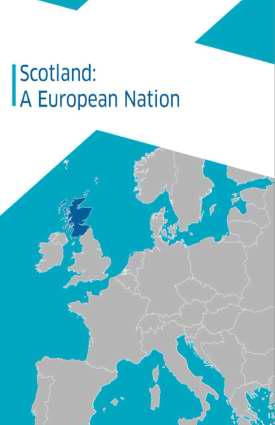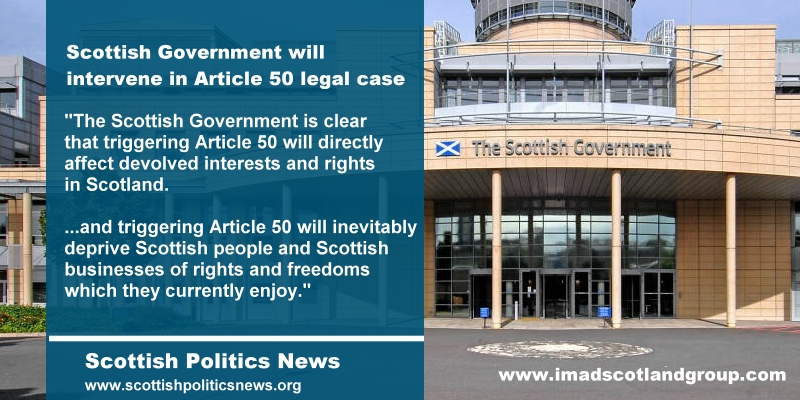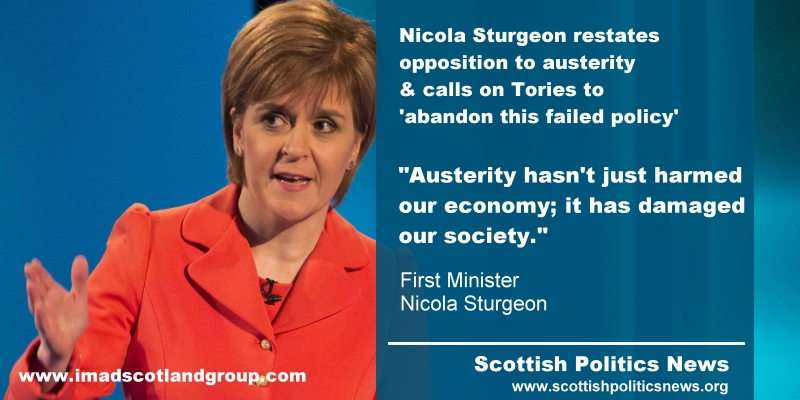Decommissioning support could boost the value of older fields by 50%.
The UK Government must meet its obligations to the oil and gas industry if the sector is to continue to overcome the prolonged period of subdued prices, Minister for Business, Innovation and Energy Paul Wheelhouse will warn on a trip to the North East today.
Scottish Government analysis of fields already nearing decommissioning has identified that the remaining value of these assets could increase by more than 50%, or almost half a billion pounds, if there were successful measures to reduce costs and increase production. This could also have future benefits for other fields that are currently in earlier stages of their production cycle.
Mr Wheelhouse underlined the figure as part of a two-day visit to Aberdeen to co-chair the Oil and Gas Industry Leadership Group and meet with oil and gas companies. He will discuss a range of topics including decommissioning, developing international opportunities and supporting exploration.
The Scottish Government has called for the Chancellor’s Autumn Statement to include measures that widen access to decommissioning tax relief. Mr Wheelhouse has also highlighted that – nine months after the UK Government’s March Budget – there has been no action on the commitment to use loan guarantees to support infrastructure investment, which could help the sector access a further two billion barrels of oil and gas.
Mr Wheelhouse said:
“The UK Government retains control of the key taxation levers affecting the sector and must take the action needed to protect businesses and jobs.
“Last week’s Decommissioning Insight report from Oil and Gas UK highlighted the £17.6 billion decommissioning opportunity over the next ten years and the need for HM Treasury to work with the industry to attract fresh investment, avoid premature decommissioning, and ensure decommissioning is carried out in a timely and cost-effective manner.
“The Chancellor’s Autumn Statement presents an ideal opportunity to offer the industry the support and clarity it deserves. The UK Government must provide support in widening access to decommissioning tax relief to ensure that the full potential of late-life assets can be realised.
“To illustrate the potential opportunities, Scottish Government analysis of fields nearing decommissioning has identified that the remaining value of these assets could increase by over 50%, or almost half a billion pounds, if there were successful measures to reduce costs and increase production.
“The UK Government should also reaffirm its commitment to provide loan guarantees to the sector, which could be important for unlocking capital investment and stimulating investment. This is of vital importance to the supply chain, which is being hardest hit by the recent slowdown and requires immediate support.
“Scottish Government analysis has identified 45 unsanctioned potentially commercial fields within the North Sea with the potential to unlock around two billion barrels of oil and gas, however this will require around £39 billion in capital expenditure.
“Without greater investment and activity we risk losing vital capacity and skills that will support production and ensure we maximise economic recovery from the North Sea. The Scottish Government believes the oil and gas industry can have a bright future. The Scottish Government is taking action where we can to help the industry, but the Chancellor must also step up to the plate and do all that he can to support the sector.”
Background
The Scottish Government has called for the Chancellor’s Autumn Statement to include measures that:
Improve access to decommissioning tax relief
In order to achieve the tripartite commitment to Maximise Economic Recovery from the North Sea, it is essential that assets are in the right hands and there are no barriers to late life asset transfers. This is of particular significance when fields are maturing and opportunities exist for companies with a competitive advantage or focus in operating late-life assets to assume ownership. The UK Government should take steps in the Autumn Statement to allow the transfer of corporate tax history along with the transfer of an asset and associated commissioning liability to close the value gap that exists between a seller and potential buyer. Addressing fiscal barriers to asset transfers could extend field life and reduce decommissioning costs – both of which will have a positive impact on exchequer revenues.
Urgent clarity on the use of loan guarantees
Nine months on from the announcement at the March 2016 Budget, there is now a pressing need for the UK Government to work directly with the industry to agree and deliver loan guarantees for critical offshore infrastructure. The Cabinet Secretary for Economy, Jobs and Fair Work previously met with HM Treasury in June 2016 to discuss delays to this process, and while receiving assurances that plans will be developed, nothing has yet materialised at this critical time for the industry.
Measures to stimulate exploration
With exploration levels currently at record lows, with only 16 exploration and appraisal wells in the first three quarters of the year, the UK Government should consider further action to stimulate exploration activity. The Scottish Government have previously called on policy changes – such as the introduction of an Exploration Tax Credit (ETC) or reforms to the Investment Allowance (IA) to widen eligibility for unsuccessful exploration. I also understand the UK Government has shown a lack of progress on proposals put forward by the industry itself.
ARTICLE SOURCE: http://news.gov.scot/news/uk-chancellor-challenged-to-step-up-for-north-sea
RELATED LINKS:
SCOT GOV WEBSITE >> www.scotland.gov.uk
 Cabinet Secretary for Culture, Tourism and External Affairs Fiona Hyslop said:
Cabinet Secretary for Culture, Tourism and External Affairs Fiona Hyslop said:


